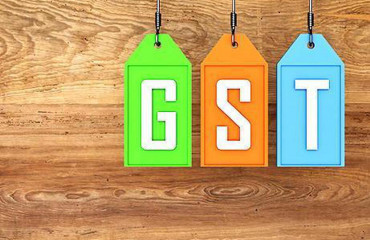
Finance Minister Nirmala Sitharaman on Tuesday said that the GST Council has decided to impose 28% tax on the turnover of online gaming, horse racing and casinos on full face value.
Finance Minister Nirmala Sitharaman on Tuesday said that the GST Council has decided to impose 28% tax on the turnover of online gaming, horse racing and casinos on full face value.
The panel, headed by the Union finance minister and comprising of representatives of all states and UTs, decided on tax rate based on recommendation of a group of ministers that looked at taxing casinos, horse racing and online gaming.
The issue before the GoM (group of ministers) was whether to impose a 28 per cent GST on the face value of bets, or gross gaming revenue, or just on platform fees.
Sitharaman said the tax will be levied on the entire value.
The tax on online gaming companies would be imposed without making any differentiation based on whether the games required skill or were based on chance.
Industry executives said they may have to pass on taxes by raising the ticket prices of games.
"The implementation of a 28% tax rate will bring significant challenges to the gaming industry. This higher tax burden will impact companies' cash flows," Aaditya Shah, chief operating officer at the gaming app IndiaPlays, said to news agency Reuters.
The All India Gaming Federation (AIGF), which represents companies like Nazara, GamesKraft, Zupee and Winzo, said the decision by the council is unconstitutional, irrational, and egregious.
"The decision ignores over 60 years of settled legal jurisprudence and lumps online skill gaming with gambling activities. This decision will wipe out the entire Indian gaming industry and lead to lakhs of job losses and the only people benefitting from this will be anti-national illegal offshore platforms," AIGF CEO Roland Landers said.
Roland Landers, CEO of The All India Gaming Federation, said the decision was "unconstitutional (and) irrational".
E-Gaming Federation (EGF), whose members include Games 24x7 and Junglee Games, said that a tax burden where taxes exceed revenues will not only make the online gaming industry unviable but also boost black market operators at the expense of legitimate tax-paying players.
"It is in addition to the loss of employment opportunities and the huge impact on marquee investors who are heavily invested in this sunrise sector," EGF Secretary Kumar Shukla said.
"Today's decision at the GST Council is not in national interest as it will destroy a significant portion of the successful companies in India's Start-up Ecosystem," said Amrit Kiran Singh, Chief Strategy Advisor to the Gameskraft founders to Moneycontrol.
Online gaming companies treat prize pool (effectively the bets!) and GGR respectively as actionable claim & platform service fee. The proposal now seems to tax the actionable claim in online gaming at 28%. It is unclear if there would still be an avenue to treat GGR as distinctive service revenue and pay only at 18% tax on same.
"The proposal to tax bets in online gaming at 28% would need significant legislative amendments and hence, may not be effective immediately. It's a given that businesses would use this window to represent for a distinction between game of chance/ skill and tax implications accordingly. The approach leaves many feathers ruffled, 28% on total consideration is like imposing a sin-tax on online skill gamers akin to one on cigarettes and alcohol. This lacks merit and is devoid of rationale. Contrary to position adopted in several leading international jurisdictions, a 28% tax on online skill gaming is a new low made in GST's history without a thought to how businesses would survive it," said Adarsh Somani, Partner, Economic Laws Practice.
"While the industry had hoped for a pragmatic approach that GST would be levied on these activities at 18% on the entry fee or platform charges only, and some states too had favoured a similar approach, the Council today decided that gaming, casino and betting services would be subjected to 28% GST on the full amount collected by the service provider, including that part of the collection which is distributed amongst the players as prize money. The decision of the Council is based on the recommendation of a Group of Ministers that had been constituted to examine these issues in detail. Assuming that the operator retains 10% of the total amount collected as his fee, effectively the taxation on these activities will go up from 1.8% of the amount collected to 28% of the amount collected. This could be a game changer for the gaming industry. There could be a challenge to this, however, as the valuation can be argued to be in violation of the provisions of the GST Acts with respect to valuation of taxable supplies," said Sanjeev Sachdeva, Partner, Luthra and Luthra Law Offices India.
